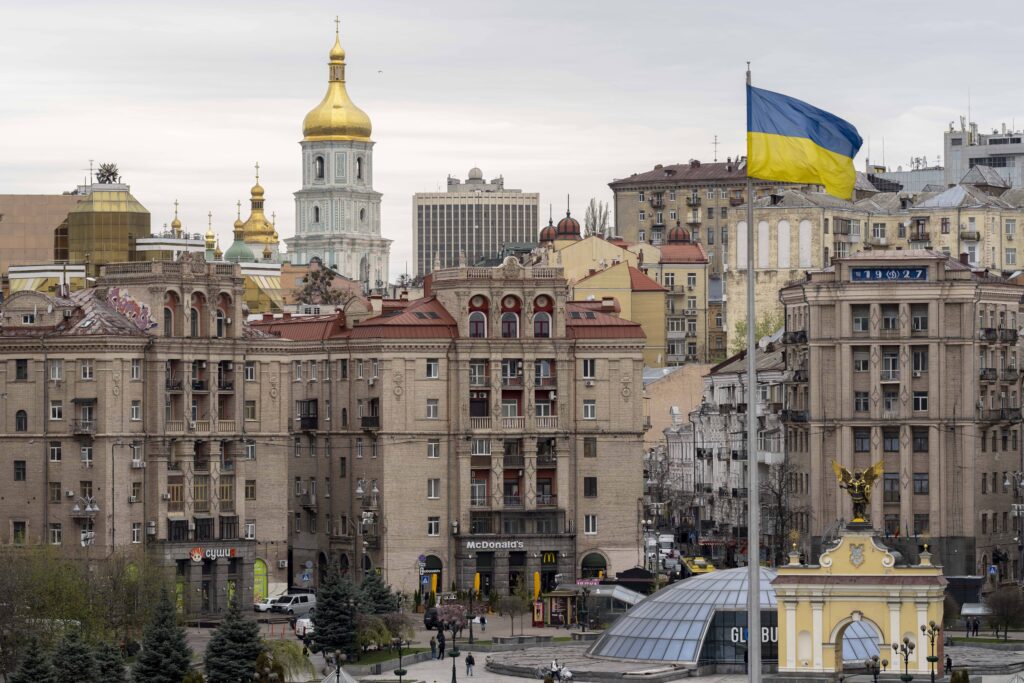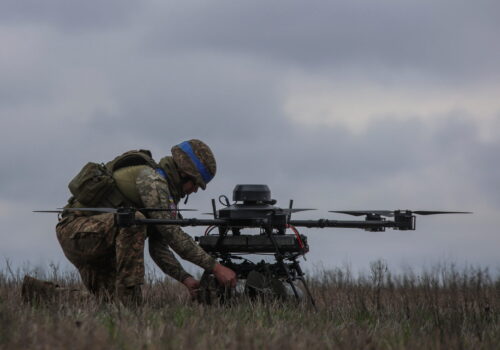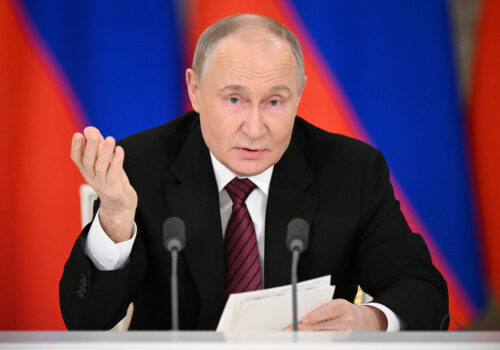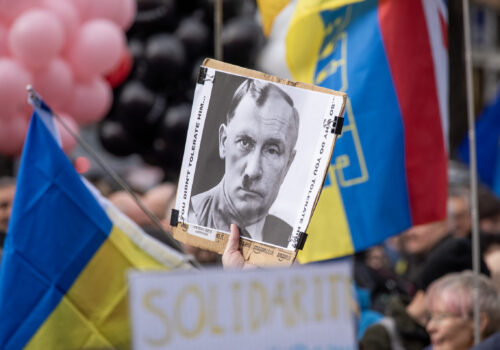As US-led efforts to broker a peace deal between Russia and Ukraine struggle to gain momentum, debate continues over what a viable future settlement could look like. While officials in Moscow, Washington, Brussels, and Kyiv discuss technicalities and potential concessions, members of Ukraine’s vibrant civil society are also attempting to define the contours of a lasting and meaningful peace.
Many Ukrainian civil society representatives stress that peace must be more than a mere pause in fighting. Temporary ceasefires may lead to periods of relative calm, but unless the root causes of the war are addressed and justice is delivered, the conflict will merely be frozen and not resolved. Similarly frozen conflicts in Moldova and Georgia offer cautionary tales of how such outcomes can serve Russian interests. These unresolved disputes have allowed Moscow to destabilize its neighbors for decades while maintaining strategic leverage and control.
Stay updated
As the world watches the Russian invasion of Ukraine unfold, UkraineAlert delivers the best Atlantic Council expert insight and analysis on Ukraine twice a week directly to your inbox.
In order to avoid the geopolitical uncertainties and internal instability of a frozen conflict, Ukrainian sovereignty must remain non-negotiable. This means rejecting any potential peace deal built on territorial concessions, restrictions on the size of Ukraine’s military, or limitations on the country’s ability to form international alliances.
Instead, Ukraine needs concrete and comprehensive security guarantees from the country’s partners. With this in mind, many civil society representatives warn against repeating the mistakes of the 1994 Budapest Memorandum, which saw Ukraine surrender its nuclear arsenal in exchange for toothless security assurances that failed to prevent Russia’s invasion.
Ukraine’s future security also depends on a strong military. Many women within the country’s civil society have sought to communicate this to their colleagues in the international feminist movement, which has often traditionally championed disarmament and non-violent conflict resolution. They stress that a durable peace cannot come at the expense of security or Ukraine’s fundamental right to exist.
Speaking during a recent visit to the United States, Ukrainian human rights lawyer and Nobel Peace Prize recipient Oleksandra Matviichuk emphasized that safeguarding Ukrainian sovereignty is about much more than protecting the country’s physical borders and also involves millions of human lives. Ukrainians living under Russian occupation are currently enduring the kidnapping of children, forced deportations, prison camps, sexual violence, widespread human rights abuses, and the methodical erosion of civil liberties. These are not isolated crimes. Instead, Russia is accused of seeking to systematically erase Ukrainian national identity in a campaign that many believe amounts to genocide.
Eurasia Center events

Ukrainian civil society leaders have stressed the need for broad inclusion in peace negotiations and post-war recovery processes. Their calls are backed by the experience of peace initiatives elsewhere. Research indicates that peace efforts are up to 64 percent less likely to fail in instances when civil society representatives are invited to participate in talks. This has been the case in places like Northern Ireland and South Africa, where a combination of official diplomacy and civil society dialogue helped forge lasting peace.
Excluding Ukrainian civil society from peace efforts could undermine the human dimension of the process and remove accountability from the equation. While defining what justice should look like at the local, national, and international levels will be an ongoing discussion requiring the involvement of diverse stakeholders, Ukrainian civil society activists emphasize that justice must remain at the heart of any peace agreement.
Demands for accountability are widespread throughout Ukrainian society. More than 70,000 war crimes have been documented since the start of Russia’s full-scale invasion, including a large number of cases involving conflict-related sexual violence. Civil society activists have been at the forefront of efforts to secure justice for war crimes while also working for the protection of displaced people and the return of abducted Ukrainian children. Their demands include ensuring that the perpetrators of war crimes do not enjoy immunity, and that frozen Russian assets be directed toward rebuilding Ukraine and supporting victims.
Many Ukrainian civil society leaders believe the pursuit of justice in response to the crimes committed during Russia’s invasion is not only a national priority. Instead, they say Russia’s actions elsewhere from Syria to Africa reflect a wider pattern of impunity and argue that addressing this problem is a global imperative. As Oleksandra Matviichuk bluntly puts it, “Unpunished evil grows.”
Russia’s full-scale invasion of Ukraine is a watershed moment in modern history that has directly undermined the foundations of the existing international order. Ukrainian activists recognize the scale of the challenge this represents, but argue that international law must be revitalized rather than being abandoned entirely. They see this moment as a critical test for the global community. How the world responds to Russia’s alleged war crimes will set precedents that extend far beyond Ukraine’s borders. Failure to act decisively now will not only undermine Ukraine’s sovereignty, but also embolden authoritarian regimes everywhere.
Ana Lejava is a Policy Officer at the Georgetown Institute for Women, Peace, and Security at Georgetown University.
Further reading
The views expressed in UkraineAlert are solely those of the authors and do not necessarily reflect the views of the Atlantic Council, its staff, or its supporters.

The Eurasia Center’s mission is to enhance transatlantic cooperation in promoting stability, democratic values, and prosperity in Eurasia, from Eastern Europe and Turkey in the West to the Caucasus, Russia, and Central Asia in the East.
Follow us on social media
and support our work
Image: IMAGO/Andreas Stroh via Reuters Connect




